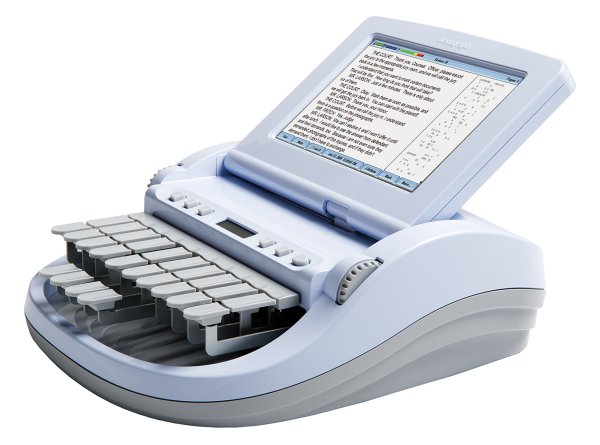Top Benefits of court reporting in Legal Proceedings
Top Benefits of court reporting in Legal Proceedings
Blog Article
Recognizing the Essential Function of Court Reporting in Legal Procedures
Court coverage is commonly neglected, yet it's necessary in lawful proceedings. You might not understand just how stenotype reporter guarantee every word spoken is taped accurately, impacting decisions made by courts and juries. Their abilities and modern technology play a substantial duty in keeping the stability of legal records. But what precisely does the procedure involve, and exactly how has it evolved in time? Allow's discover the fundamental features of court reporting and its significance in the lawful landscape.
The Background of Court Coverage
Court reporting has an abundant history that dates back to ancient people, where scribes utilized numerous techniques to capture talked words. The earliest forms of shorthand emerged in Greece around 400 BC, enabling thinkers and political leaders to tape speeches rapidly. As you relocate with history, you'll discover that the Romans adopted comparable strategies, refining them to document lawful procedures. By the 16th century, modern shorthand systems began to take shape, making it possible for stenotype reporter to create accurate records efficiently.
Today, court reporters play a significant function in legal procedures, ensuring that every word talked in the court is precisely documented. Comprehending this history highlights the value of court reporting in preserving a reasonable lawful system.
The Abilities Required for Court Reporters
As a stenotype reporter, you need solid keying abilities to keep up with the busy dialogue of legal procedures. Your capability to pay attention diligently is simply as vital, guaranteeing every word is caught properly. Grasping these skills is key to delivering specific and dependable transcripts.
Skilled Typing Capabilities

Strong Listening Skills
Strong listening skills are crucial for court press reporters, as they have to precisely capture talked words in real time. You require to focus intently on the dialogue, getting subtleties, tone, and context to guarantee every information is tape-recorded correctly. This ability assists you distinguish in between audio speakers, comprehend legal lingo, and comply with complex discussions. It's not nearly hearing words; it's regarding understanding and interpreting them promptly. You'll often face different accents and speech patterns, so adaptability is crucial. Exercising active listening methods can enhance your abilities; as an example, summarizing what you've heard after discussions can strengthen your abilities. Ultimately, solid listening abilities make you a crucial possession in lawful process, making sure clearness and precision in the court record.
The Technology Behind Court Reporting
In the domain name of legal procedures, technology plays an important role in enhancing the accuracy and performance of court reporting. You're likely acquainted with the conventional stenotype equipment, yet contemporary stenotype reporter now use innovative software application that integrates with these makers, permitting real-time transcription. This indicates you can have immediate access to the records as the process unfold.
Digital audio recording is another technical development that's obtaining traction. It catches every talked word, ensuring nothing is missed out on. Some press reporters use voice acknowledgment software program, which can help improve the transcription process, though it still calls for human oversight for accuracy.
Furthermore, cloud-based storage permits simple accessibility and sharing of records, boosting cooperation amongst legal teams. By leveraging these modern technologies, court press reporters can provide top notch, timely documents that are vital for the legal procedure. Welcoming this technology not just improves your understanding yet also assures integrity in legal documentation.
The Court Reporting Refine

As legal procedures unfold, the court reporting procedure becomes important in capturing every detail accurately. You'll find that a stenotype reporter plays a vital role by transcribing spoken words into composed text in real-time. When you step into the courtroom, the press reporter is currently prepared, outfitted with specialized tools like stenographic devices and audio recording gadgets.
During the process, the reporter pays attention diligently, typing out every little thing stated, from witness statements to legal representatives' disagreements. You may notice them stopping occasionally to ensure clearness or to request a repeat if something had not been clear. After the session, the his comment is here press reporter assesses the records, making needed edits for readability.
This whole procedure not only guarantees a thorough record yet additionally prepares you for future recommendation throughout allures or instance testimonials. In the hectic setting of a courtroom, the court reporting procedure is necessary for keeping a precise account of occasions.
The Significance of Precision in Records
While a court reporter's key responsibility is to record talked words, the precision of these transcripts is important for the honesty of legal proceedings. When you're associated with a situation, you count on accurate documentation to recognize the occasions and arguments presented. Any mistakes in transcription can cause misconceptions, misconceptions, or perhaps wrongful judgments.
Accurate transcripts guarantee that every information is captured, giving a reputable document for courts, lawyers, and juries. This level of detail is essential throughout allures or when referencing previous testaments. If a transcript has inaccuracies, it can undermine the whole legal procedure, possibly affecting results.
Additionally, precise records maintain the rights of all events entailed, promoting fairness and transparency. Whether you're a legal representative preparing for test or a witness reflecting on your testament, you can rely on that the court press reporter's ability in precision plays a significant role in your situation's success.
The Function of Court Reporters in Various Legal Settings
Court reporters play a crucial function in different legal setups, from trials to depositions and lawful hearings. You'll locate that their job warranties every spoken word is properly caught, which is essential for the lawful procedure. Understanding exactly how their obligations vary across these environments can highlight their influence on the justice system.
Court Reporters in Trials
In any type of legal trial, you'll find that court press reporters play a vital role in capturing the procedures with precision and precision. Court reporters need to maintain emphasis and speed, typically utilizing specific tools to keep up with hectic dialogue. Ultimately, court reporters help copyright the justice system, making sure openness and liability throughout tests.
Depositions and Lawful Hearings
Beyond tests, court press reporters likewise play an essential duty in depositions and lawful hearings. Throughout these proceedings, they capture every talked word, making sure an exact document of testaments and discussions. You'll discover that this accuracy is very important, as depositions commonly function as a foundation for later arguments in court. Court press reporters provide real-time transcription solutions, permitting attorneys to adhere to along and attend to important link any concerns immediately. Their work improves the effectiveness of legal hearings, making it simpler for all parties to refer back to the official record. In addition, the records they produce can be significant for appeals and other legal processes - court reporting. Simply put, court press reporters are essential in keeping the honesty and clarity of the lawful document in depositions and hearings.
Future Patterns in Court Reporting
As technology remains to develop, the future of court reporting promises to be shaped by innovative devices like this and methods that boost accuracy and performance. You'll likely see raised use synthetic intelligence and real-time transcription services, streamlining the reporting procedure. These advancements can aid you access transcripts quicker, which can be crucial for your lawful methods.
In addition, incorporating video conferencing and remote reporting will certainly end up being extra typical, enabling you to connect with court press reporters from anywhere (court reporting). This adaptability can make depositions and hearings a lot more easily accessible, conserving both time and resources
You'll likewise observe an emphasis on electronic recordkeeping, which simplifies the storage space and retrieval of transcripts. With cloud-based remedies, you'll have the ability to share files securely and collaborate with your lawful group in real-time.
Frequently Asked Concerns
What Is the Ordinary Income of a Court Press Reporter?
The average income of a stenotype reporter varies by location and experience, but you can anticipate it to range from around $50,000 to $80,000 annually. Several aspects affect this revenue, consisting of specialization and need.
Exactly how Do I Come To Be a Qualified Stenotype Reporter?
To come to be a certified stenotype reporter, you'll need to finish a court reporting program, pass a certification exam, and gain practical experience. It's important to stay upgraded on sector requirements and continuing education and learning demands.
What Kinds of Instances Do Court Reporters Cover?
Stenotype reporter cover numerous instances, including criminal trials, civil suits, depositions, and adjudication hearings. You'll locate them documenting everything, guaranteeing precise records for judges, attorneys, and events entailed, recording every word spoken in legal settings.
Are Court Reporters Required to Have a Level?
Yes, court reporters typically need a degree or qualification in court reporting. Many programs provide specialized training, ensuring you gain the abilities necessary for accurate transcription and lawful paperwork in numerous settings.
Can Court Reporters Job Remotely?

Report this page